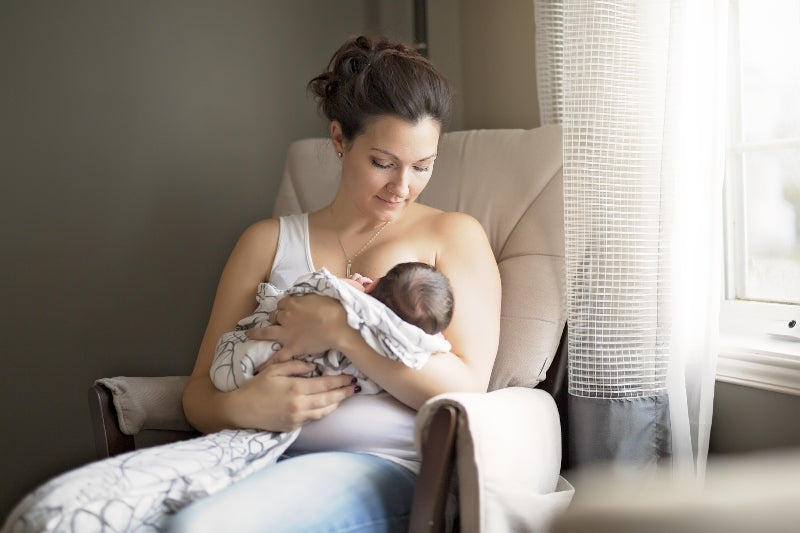" How do parents deal with this? "
Hand on heart. Everyone has lied in their life and many a fib is dismissed as a white lie to save the day. However, when children tell the truth, many parents are shocked when they find out the truth. But how should you deal with it when children lie?
The little untruth in everyday life
Although everyone lies several times a day and is not always sincere, you are offended if it turns out that you yourself have been lied to. When children lie, they are testing how far they can go and what rules really apply. Lying is therefore part of normal child development, but it is still very annoying. Especially if it happens regularly and you catch your child telling lies more and more often, you should be prepared with good rules of conduct.
When reality and fantasy don't match
Younger children under the age of seven are not yet in a position to actively use a lie. Their perception is still developing and so it often happens that they mix reality with their imagination and therefore do not tell the truth. For example, your little one may think their own room is tidy because they have put certain toys away. They are therefore not yet able to differentiate between the fact that there are other things scattered around the room and the fact that the room is not at all tidy from an adult's point of view.

Why do children lie?
The situation is different for girls and boys who have already reached primary school age. They have a much better grasp of situations and are more likely to tell a fib to make their own lives easier. And they learn this from no one less than their direct caregivers and their own parents. Children trust that everything their parents do and don't do is right. Unfortunately, this also includes unpleasant things such as dishonesty, which can quickly lead to unpleasant situations.
What should you do if you catch children lying?
First of all, you should try to deal with the situation calmly and not exert any pressure. Explain to your offspring what role honesty, trust and firm rules play in your family and why you need to tell each other the truth. This can also be illustrated very well using pictures, books or stories. A well-known example is Pinocchio, whose nose gets longer and longer the more untruths he tells. However, when children lie, it is not always for harmless reasons. Sometimes they do this because they are very embarrassed by a certain situation and may have already had a bad experience if they have told the truth. This could be the case if a bad grade was achieved at school. So to protect themselves from anger and punishment, a white lie is invented in which the bad grade did not even exist. Of course, sooner or later the dishonesty will be discovered, possibly even because the child tells you about the bad grade. Then you should remain calm, put your own emotions aside and respond to the honesty with praise and say that you are glad that everything can be talked about openly in your family.

Strong scolding and punishment are not solutions
Be an important role model
Of course, almost all parents want their offspring not to fib and to always tell the truth. However, this can only be achieved if the parents themselves do not allow themselves to be caught being dishonest and are a very good role model. Children often lie because they imitate their caregivers. If you notice this peculiarity in your family, you should question yourself and your own behavior and reflect with your partner on whether you can change anything. Telling an untruth does not directly mean that your parenting has gone wrong or that you are a bad parent. However, little girls and boys need to actively learn the importance of trust, openness and dishonesty as they develop. And this happens through open communication without coercion and pressure and also through praise when dishonesty is admitted and clarified.

Be a good role model
In dialog with the little ones, the consequences of frequent lying in everyday life and the negative effects it can have on interactions with other people should be pointed out. Soon, no one will believe you, regardless of whether the story is true or false. It can also mean that you don't get help when you really need it, as no one will believe that the liar is actually trapped in a dangerous situation. Children are less likely to lie if they have understood the importance of trust. Perhaps ask your children if they would like to be friends with someone who constantly lies and doesn't tell the truth. This will encourage them to think and also awaken their empathy.
Punishments are counterproductive
In general, punishment should be used as rarely as possible when bringing up your pet. Taking away cuddly toys and children's toys is not a solution either. If punishment does become necessary, then it should be specifically related to the offense. If you resort to harsh punishments, the youngest children will quickly learn that they only have to be better the next time they fib so that they are not punished. They don't learn that they should actually tell the truth because they are ashamed. You should never make your children feel guilty or make them feel guilty for lying. Because when children lie, there is always a specific reason behind it, which you need to find out by listening and looking. You can then work on how to avoid this in the future and give the little ones a good feeling about the truth.










